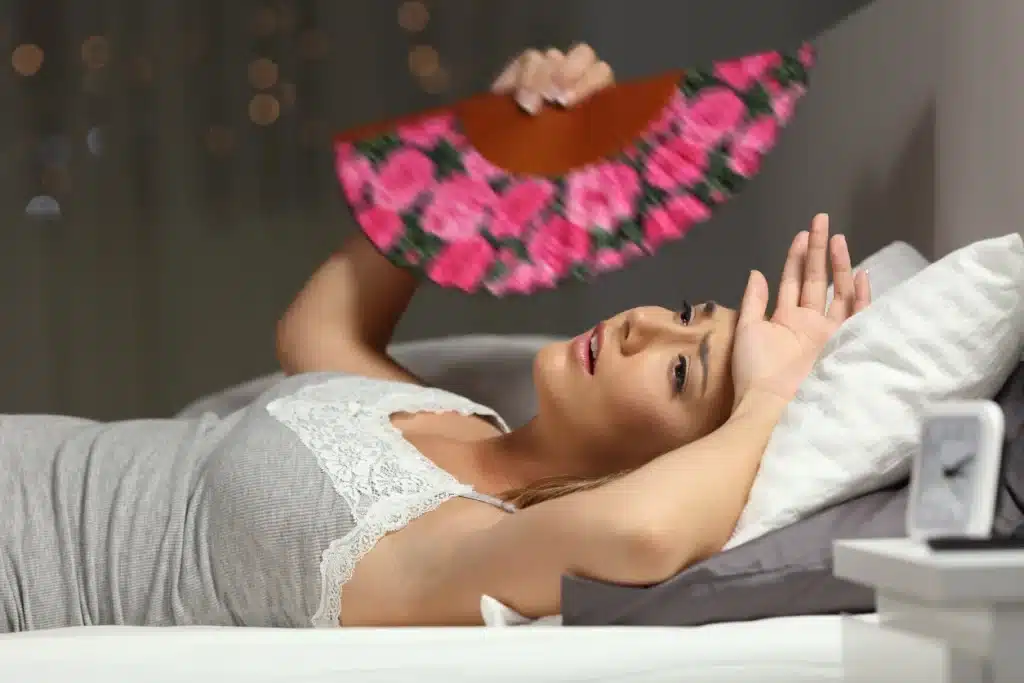Let me tell you a story that might sound a bit too familiar. It’s the middle of the night, and you’ve just woken up in a pool of sweat. You’ve tried everything – adjusting the thermostat, using lighter blankets, and even sleeping in your most comfortable, breathable pajamas. But, somehow, you still wake up soaked in sweat. Sounds familiar? You’re not alone.
The culprit could be right beneath you – your mattress protector. But do mattress protectors make you sweat? The answer is both yes and no. It all depends on the type of mattress protector you’re using.
In this article, we’ll dive into the world of mattress protectors and their connection to night sweats. We’ll also explore the different types of mattress protectors and their materials, as well as how to choose the right one for you.
What Are Mattress Protectors?
First things first, let’s talk about what a mattress protector is and what it does. A mattress protector is a thin layer of material that’s designed to go over your mattress, like a fitted sheet. Its primary purpose is to protect your mattress from spills, stains, and other forms of damage. Some protectors also provide a barrier against dust mites, allergens, and bed bugs, making them a popular choice for people with allergies or asthma.

The Connection Between Mattress Protectors and Night Sweats
Before we discuss the different types of mattress protectors and their materials, let’s first understand the link between them and night sweats.
Your body naturally loses heat while you sleep. Ideally, your mattress should be able to dissipate this heat, keeping you cool and comfortable throughout the night. However, some mattress protectors may not allow for adequate airflow, trapping heat and causing you to sweat.
One reason for this is that some mattress protectors are designed to be waterproof, which could mean reduced breathability. If you’ve ever found yourself asking, “Why does my bed feel damp at night?”, it’s possible that your mattress protector is not allowing your body heat to escape.
On the other hand, if you’ve recently purchased a new mattress and are wondering “should you take the plastic off a new mattress”, the answer is a resounding yes. Leaving the plastic on your mattress can trap heat and make you sweat.
Types of Mattress Protectors and Their Materials
To understand which mattress protectors can make you sweat, let’s dive into the various types available in the market and the materials they’re made from.
1. Vinyl Mattress Protectors
Vinyl mattress protectors are the most common waterproof options available. While they’re effective at protecting your mattress from spills and stains, they’re not breathable, which means they can make you sweat. If you’re already prone to night sweats or sleep hot, a vinyl mattress protector may not be the best choice for you.
2. Polyurethane Mattress Protectors
Polyurethane mattress protectors are another waterproof option, but they’re more breathable than vinyl. They have microscopic pores that allow air to circulate while still keeping your mattress safe from liquids. However, the breathability of polyurethane protectors can still be limited, and they may not be the best choice for hot sleepers.
Waterproof mattress pads can also prevent the air flow through your mattress. As a result, your mattress may trap any excess moisture that is present in the room, leading to potential mold growth.
Ultimately, choosing a waterproof mattress protector may make you feel hot at night, and stop you from getting a good night’s sleep.
3. Cotton and Bamboo Mattress Protectors
Cotton and bamboo mattress protectors are natural, breathable options that can help keep you cool during the night. Both materials are known for their moisture-wicking properties, which can help absorb and dissipate sweat. However, it’s essential to note that not all cotton or bamboo mattress protectors are waterproof, so they may not provide complete protection against spills and stains.
Read also: microfiber vs jersey sheets
4. Cooling Mattress Protectors
If you’re someone who struggles with night sweats or just sleeps hot in general, a cooling mattress protector may be the perfect solution for you. These protectors are made from advanced fabrics that wick away moisture and heat, keeping you cool and comfortable throughout the night. Some even have cooling gel to provide a nice cool feeling to your bed.
If you do go down the gel cooling mattress protector route, you will get the benefit of a cooling mattress cover and still have a waterproof layer if you choose one with a plastic membrane as well as cooling technology.
Do Waterproof Mattress Protectors Make You Sweat?
Whether or not a mattress protector will make you sweat depends on the material it’s made from. Waterproof materials such as vinyl and polyurethane can reduce breathability, making you more likely to sweat during the night. The extra protection given by the waterproof barrier is a good thing, but the increase in your body temperature and the reduction in air circulation is likely to be a negative when making your decision.
How to Choose the Right Mattress Protector for You
Now that we’ve covered the different types of mattress protectors and their materials, it’s time to choose the right one for you. Here are a few factors to consider:
1. Your Sleeping Preferences
Your personal sleeping preferences will play a significant role in determining which mattress protector is right for you. If you sleep hot or are prone to night sweats, a cooling mattress protector may be the best choice. If you prefer a more natural, breathable option, a cotton or bamboo protector may be the way to go.
2. Protection Needs
If you’re looking for a mattress protector primarily for protection against spills and stains, a vinyl or polyurethane protector may be the most effective option. However, if you’re looking for a protector that also provides breathability and comfort, a cotton or bamboo protector may be a better choice.
3. Budget
Finally, your budget will play a role in your decision. While cotton and bamboo protectors tend to be more affordable, cooling or waterproof protectors can be more expensive. Consider what you’re willing to spend and which features are most important to you.
Conclusion: Do Mattress Protectors Make You Sweat?
In conclusion, while some mattress protectors can make you sweat, there are plenty of options available that can help you stay cool and comfortable while you sleep. Choosing a protector made from breathable, moisture-wicking materials and ensuring it fits your mattress properly, you can reduce night sweats and get a better night’s sleep. Remember to consider your personal sleeping preferences, protection needs, and budget when choosing a mattress protector, and don’t hesitate to try a few options until you find the one that works best for you.
